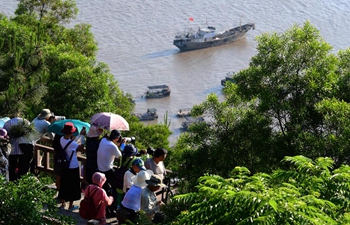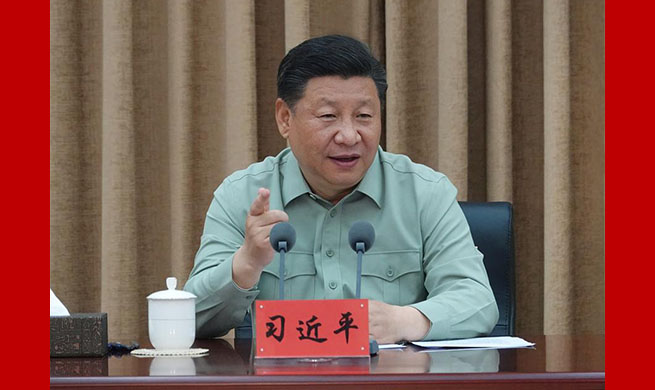UNITED NATIONS, May 17 (Xinhua) -- The UN humanitarian coordinator for the occupied Palestinian territory on Thursday called for urgent support to meet the humanitarian needs of victims of violence in Gaza.
"The situation in Gaza is devastating and the crisis is far from over," said Jamie McGoldrick in a statement, referring to weeks of clashes between Palestinians and Israel's security forces near the border fence in Gaza.
"For every person killed and injured this week and those before, there is a family and a network of friends affected," he said. "For many, especially those who lost a loved one, who will now suffer a permanent disability or who will need intensive rehabilitation, the impacts of recent violence will be felt for months and years to come."
In Monday's clashes alone, at least 60 Palestinians were killed, as Palestinians protested the new U.S. Embassy in Jerusalem. According to UN figures, more than 100 have died since March 30, when the massive protests began.
In this context, the humanitarian response in Gaza is focused on providing immediate life-saving health care, mental health and psycho-social support for affected people, especially children, and monitoring, verifying and documenting possible protection violations, said McGoldrick.
These new needs are in addition to a pre-existing humanitarian and human rights catastrophe caused by nearly 11 years of Israeli blockade on Gaza, alongside internal Palestinian political divide and a chronic energy crisis that leaves Gaza's 2 million inhabitants with power cuts of up to 22 hours per day on average, and severely disrupts the provision of essential services, he noted.
In a welcome development, despite the damage inflicted on Kerem Shalom crossing, the main entry point for goods between Israel and Gaza, it has been partially re-opened, with 15 truckloads of medical supplies entering Gaza on Sunday and Tuesday, he said.
"Medical teams in Gaza have exerted heroic efforts, working tirelessly and often at personal risk, to save lives," said McGoldrick. "But stocks of medicines and supplies are being depleted, with few resources to replenish them. Our ability to reach affected families, including children, and provide assistance is extremely limited due to funding shortfalls."
Health partners have indicated that despite recent contributions to the health sector, 1.2 million U.S. dollars is needed immediately for drugs and disposables and a further 3.9 million dollars for medical supply needs and emergency medical technicians.
A further 19.5 million dollars, he said, is required for medium-term, chronic needs till August.
The 2018 humanitarian response plan, which requests 400 million dollars in assistance for the Gaza Strip, is significantly underfunded, with only 16 percent of the appeal supported, he noted.

















